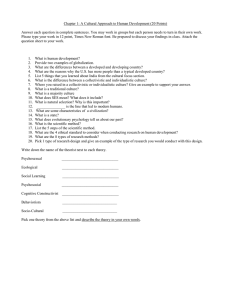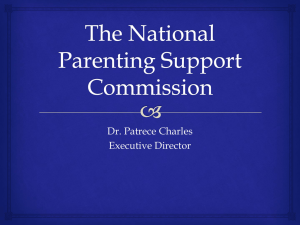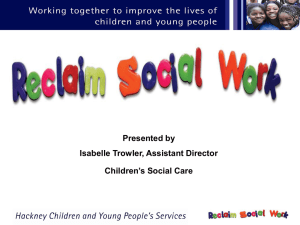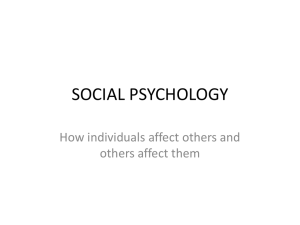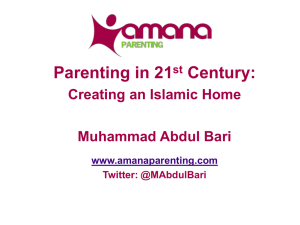GLOBAL STUDIES MODULE FORMAT Ivy Tech Community College
advertisement
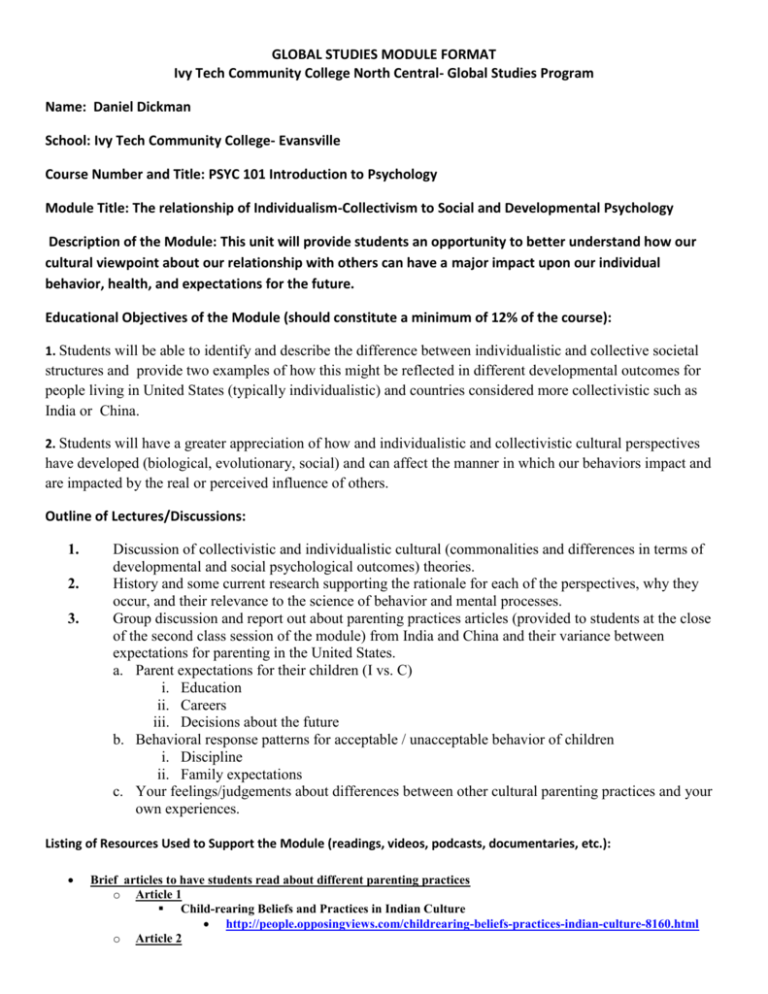
GLOBAL STUDIES MODULE FORMAT Ivy Tech Community College North Central- Global Studies Program Name: Daniel Dickman School: Ivy Tech Community College- Evansville Course Number and Title: PSYC 101 Introduction to Psychology Module Title: The relationship of Individualism-Collectivism to Social and Developmental Psychology Description of the Module: This unit will provide students an opportunity to better understand how our cultural viewpoint about our relationship with others can have a major impact upon our individual behavior, health, and expectations for the future. Educational Objectives of the Module (should constitute a minimum of 12% of the course): 1. Students will be able to identify and describe the difference between individualistic and collective societal structures and provide two examples of how this might be reflected in different developmental outcomes for people living in United States (typically individualistic) and countries considered more collectivistic such as India or China. 2. Students will have a greater appreciation of how and individualistic and collectivistic cultural perspectives have developed (biological, evolutionary, social) and can affect the manner in which our behaviors impact and are impacted by the real or perceived influence of others. Outline of Lectures/Discussions: 1. 2. 3. Discussion of collectivistic and individualistic cultural (commonalities and differences in terms of developmental and social psychological outcomes) theories. History and some current research supporting the rationale for each of the perspectives, why they occur, and their relevance to the science of behavior and mental processes. Group discussion and report out about parenting practices articles (provided to students at the close of the second class session of the module) from India and China and their variance between expectations for parenting in the United States. a. Parent expectations for their children (I vs. C) i. Education ii. Careers iii. Decisions about the future b. Behavioral response patterns for acceptable / unacceptable behavior of children i. Discipline ii. Family expectations c. Your feelings/judgements about differences between other cultural parenting practices and your own experiences. Listing of Resources Used to Support the Module (readings, videos, podcasts, documentaries, etc.): Brief articles to have students read about different parenting practices o Article 1 Child-rearing Beliefs and Practices in Indian Culture http://people.opposingviews.com/childrearing-beliefs-practices-indian-culture-8160.html o Article 2 o o o o Traditional Indian parenting practices http://www.indiatribune.com/index.php?option=com_content&view=article&id=4357:traditional-indian-parenting-practices&catid=99:column&Itemid=462 Article 3 Fathers and Parenting: India 2009 From: http://www.indiaparenting.com/raising-children/253_1353/fatherhood.html Article 4 Interpretations of Culturally Different Parenting Practices and the Legal Implications Court Decisions in Other Countries http://infochangeindia.org/children/analysis/childrearing-practices-culture-and-psychology.html Article 5 Beliefs, Values and Customs of Chinese Parents http://everydaylife.globalpost.com/beliefs-values-customs-chinese-parents-15904.html Article 6 Traditional Chinese parenting: What research says about Chinese kids and why they succeed. http://www.parentingscience.com/chinese-parenting.html Description of the Assignments Used to Facilitate an Understanding of the Module Objectives (writings, interviews, reflections, experiential projects or field work): 1. Group activity (small group discussion and report out class as a whole) about parenting practices articles from India and China and their variance between expectations for parenting in the United States. 2. Students will write a reflection paper after the class activity and respond to the following questions: i. From a psychological frame of reference, what might be some of the reasons such differences occur. ii. How might our view of such cultural differences (individualistic /collectivistic) impact our judgment of those families and the society of which they are part? Evaluation/Testing Used to Assess the Comprehension of the Module: 1. 2-3 page reflection paper (40 points) 2. Exam questions (questions about this material worth 40/100 points for this exam). Note: total points possible for this course are 660. Evaluation will count for 12% of total course points available. Resources (Bibliography) used to Develop/implement the Module: 1. Text: 2. Triandis,H.C., Bontempo,R., Villareal,M.J., Asai,M.,& Lucca,N. (1988). Individualism and Collectivism: Cross Cultural Perspectives on Ingroup Relationships. Journal of Personality and Social Psychology, 54(2), 323-338. 3. Tao, V. & Hong, Y. (2013, December, 13). When Academic Achievement Is an Obligation: Perspectives From Social-Oriented Achievement Motivation. Retrieved February16, 2014 from University of Macau, Macao, China, Psychology Website: http://jcc.sagepub.com/content/45/1/110.full.pdf+html 4. Chiao J.Y. & Blizinsky, K. D. (2009, October, 28). Culture–gene coevolution of individualism-collectivism and serotonin transporter gene. Retrieved March 10, 2015 from U.S. National Institutes of Health, PubMed Central® Web site: http://www.ncbi.nlm.nih.gov/pmc/articles/PMC2842692/ 5. Gorodnichenko, Y & Roland, G. (2011). Understanding the Individualism-Collectivism Cleavage and its Effects Lessons from Cultural Psychology:. Retrieved June 15, 2015 from University of California, Berkeley, eml.berkeley.edu Web site: http://eml.berkeley.edu/~groland/pubs/IEA%20papervf.pdf
